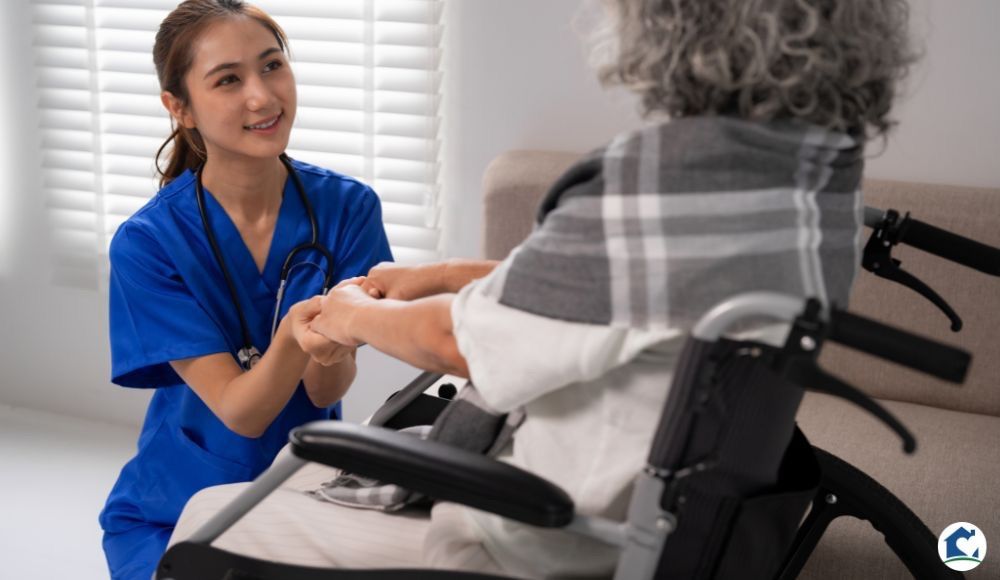Effective Communication with In-Home Healthcare Providers
When you live independently, one approach to receiving proper in-home health care and making informed choices about your health is to communicate clearly with your doctors and nurses. Communication is the most important thing you can do to develop trust, clarify confusion, and ensure you get what you need, whether you're going in for a routine check-up or dealing with a long-term ailment. Patients who are involved in their own care often feel better about the entire healthcare process.
Prepare a List of Questions Before Appointments
One of the best ways to maximize your time with a doctor or specialist is to plan. It's easy to forget vital things when you're in a hurry at the doctor's office. Making a list of questions before you go makes sure you don't forget anything.
You should add any information to your list that explains symptoms, adverse effects of medications, test results, or alternative therapies. Start with the most critical problems first. This way, even if you don't have much time, your most essential difficulties will be dealt with first. You can also remember what was said later by bringing a notepad or using your phone to take notes during the conversation. This preparation not only saves time, but it also shows your physician that you are taking an active role in your own treatment.
Keep Detailed Records of Medical History and Medications
Healthcare providers rely on accurate information to make informed decisions about your treatment. Keeping thorough records of your medical history, including past illnesses, surgeries, allergies, and family health conditions, is invaluable for your overall well-being. A complete list of current medications—both prescription and over-the-counter—should continually be updated and shared during appointments.
Maintaining these details helps providers avoid harmful drug interactions, make more accurate diagnoses, and tailor care plans to your unique needs. Many patients find it helpful to carry a printed health summary or keep this information stored in a secure app for quick reference. By taking ownership of your health records, you enable every member of your care team to work with the most accurate and reliable information.
Build Rapport with Doctors and Care Teams
Home health care planning is most effective when it is built on trust and collaboration. Developing a strong connection with your doctors and care teams fosters open communication and mutual respect. Simple steps—such as making eye contact, being honest about your symptoms, and expressing your preferences—can go a long way.
It's also important to listen actively. Providers may use unfamiliar medical terms, so don't hesitate to ask for clarification in plain language. A respectful, two-way dialogue helps ensure you feel heard while allowing your healthcare team to provide guidance tailored to your circumstances and values.
Building this relationship encourages continuity of care, which is especially important if you see multiple specialists. When providers know you trust and engage with them, they are more likely to tailor recommendations, explain alternatives, and work closely with you toward the best outcomes.
Request a Free In-Home Consultation with a Licensed Nurse
Discover how Comforting Home Care by Phoebe, a leader in home respite care, can support you or your loved ones. Schedule a complimentary in-home consultation today, and one of our compassionate licensed nurses will visit you anywhere in Berks, Bucks, Lehigh, or Northampton Counties.
Contact us at 610-625-5206 or connect with us online to learn more.












